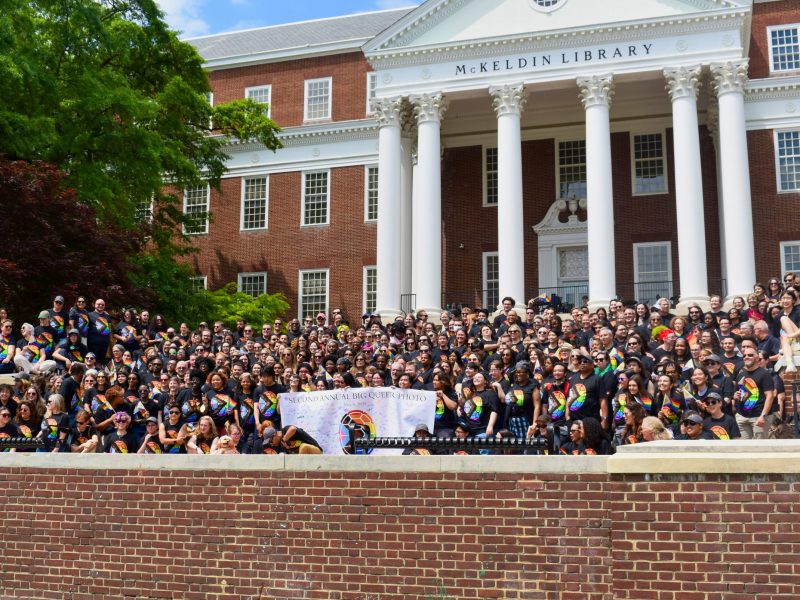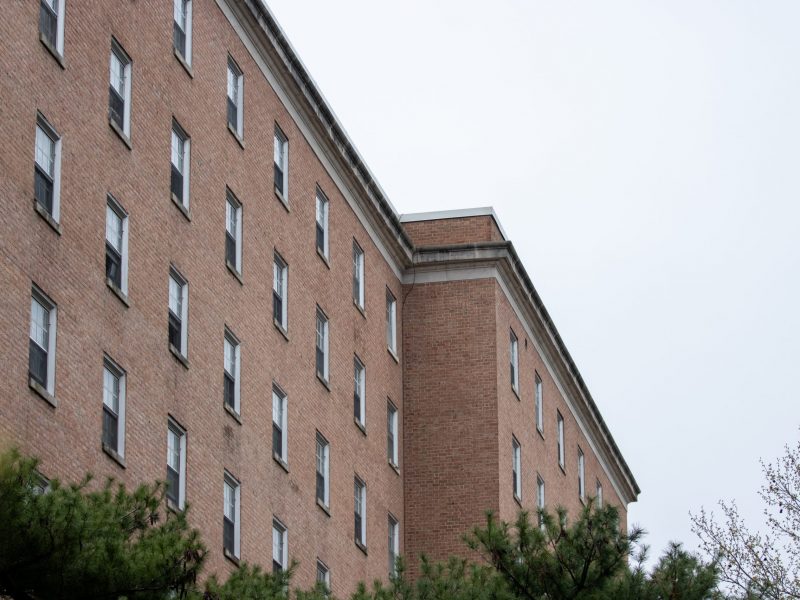Before becoming a University of Maryland student, Landon Wilson was a cryptologic technician in the U.S. Navy. But he was honorably discharged from his position after his commanders found out he was a transgender man.
While Wilson, a junior English and secondary education major, was primarily stationed in Hawaii, he was deployed to Afghanistan in 2013, after he began his transition from female to male.
During the middle of a promotion, his commanders found discrepancies with his gender marker on his paperwork. He was eventually told he couldn’t continue his transition as he was serving, which led to his separation from the service.
“It was one defining factor that stood in the way of how they really saw me,” Wilson said. “When it came down to having to either choose myself, or choose serving in an institution that would not fight for me, choosing myself was the best decision I’ve made.”
President Trump announced Wednesday on Twitter a reversal of an Obama administration policy that allows transgender people to openly serve in the military. Having experienced his own discharge, Wilson said it was “heartbreaking” when he heard the news.
Trump wrote in his tweet that the U.S. government would not allow transgender individuals to “serve in any capacity” in the military, citing “tremendous medical costs” and “disruption” that they “would entail.”
No formal policy has been crafted, but Wilson said the message Trump’s tweet sends is “much more significant than what this imagined policy could be.”
“It sends this message that transgender people are a burden or a problem, that they’re a disruption that is just too expensive to really address,” Wilson said. “I’ve seen service members rise to the occasion in ways that I would have never anticipated, because they know they have to go an extra mile to prove themselves as worthy, just because they are transgender.”
While some current and former student veterans could be impacted by this potential policy, the number is still unknown, said Brian Bertges, this university’s Veteran Student Life coordinator. Bertges is working with others at this university to ensure these veterans receive any needed support.
Luke Jensen, this university’s LGBT Equity Center director, described one of Trump’s reasons for his decision — the increased medical costs — as a “bogus argument.”
The RAND Corporation, a nonprofit research institution, found in a 2016 study that allowing transgender people to serve openly in the military would result in “minimal impact on readiness and health care costs,” according to a press release.
The report estimates health care costs could rise by $2.4 million to $8.4 million, an increase of about .13 percent.
Moreover, Wilson argued that if Trump discharged the thousands of active-duty transgender service members, the military would face decreased readiness. In 2014, about 15,500 transgender people served in the U.S. military, according to a UCLA study.
“You cannot be a ready military if you discharge thousands of people if you don’t have thousands of other people to replace them,” Wilson said. “You form such a community in the service that when one person leaves, the rest of that team deals with those consequences, and that is what ultimately weakens unit cohesion and morale more than anything else.”
Yamile Guraieb, a senior criminal justice major and Pride Alliance group liaison, said she had wanted to join the Army since she was 11. However, during the 2016 election, she considered forgoing enlistment because of the rhetoric surrounding Trump, which she felt attacked her identity as a Mexican immigrant and a queer woman, she said.
A few weeks ago, she began to reconsider joining, citing recent progress made by the military, including the repeal of “don’t ask, don’t tell” and the opening of all military occupations to women in 2016.
But this latest announcement makes it hard for her to see that as a possibility, Guraieb said, adding that the military may miss out on many people who identify as transgender or who are transgender allies.
“The bigotry, transphobia and blatant discrimination — it’s too serious to ignore,” Guraieb said. “While [the military] does provide a lot of opportunities, people are serious about these issues. If they can’t serve, then I won’t serve.”
Although the national political climate is concerning to many LGBT students, it doesn’t change this university’s policies, protection and support for them, Jensen said.
In the fall, the LGBT Equity Center is launching the #TransTerps Awareness Project, which is a campuswide educational campaign to “further good practices for trans inclusion and equity,” according to a form put out by the campaign.
While this has not been planned in response to Trump’s ban, Jensen described it as “well-timed.”
“Our campus has invested in many, many ways in providing a safe, welcoming and empowering place for LGBTQ students to come, study and thrive,” Jensen said. “And we will continue to do so.”
Wilson said he retains hope that as time passes the military will become more progressive and open-minded.
“The argument that we’re using for trans people in the service is the same argument that we made for people of color in the service, for women in the service … and every time we found that these arguments have no real weight,” Wilson said. “If people are qualified to serve, if people are willing to serve, we should let them serve.”



